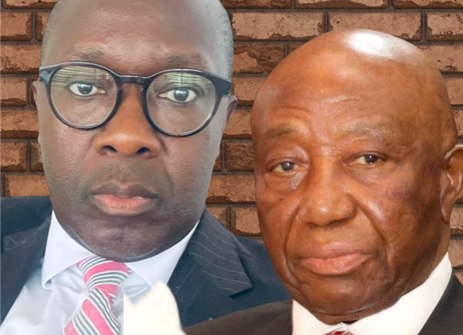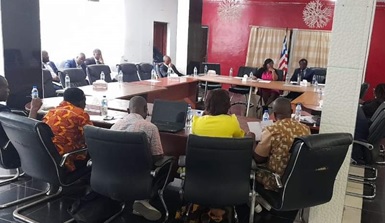MONROVIA, LIBERIA – Gbarpolu County Senator Amara Konneh has voiced strong criticism regarding Liberia’s dependency on Lebanese businessmen for its food security, particularly in the rice sector. In a candid Facebook post today, Senator Konneh expressed his frustration and called for urgent reforms.
“Our food security is in the hands of a bunch of Lebanese men. The rice issue is not new,” Konneh stated, referring to an article from 2004 highlighting similar concerns. He pointed out that the problem persists today under President Boakai due to the failure of previous administrations to address it. He specifically mentioned the head of K&K Corporation, who was banned and deported for creating artificial rice shortages in 2007-2008 but later resumed operations, remaining influential in the rice import cartel.
Senator Konneh recalled his tenure as Finance Minister, during which he proposed a comprehensive plan to reform the rice market. His plan included liberalizing the Import Permit Declaration (IPD) regime, establishing a fund to stabilize rice prices, and opening the market to Liberian businesses by providing financial support for their Letters of Credit (LCs). The proposal also aimed to use a portion of the country’s reserves to fund a new agricultural bank to boost local rice production. However, this plan was rejected by the Cabinet, citing the 1979 Rice Riots as a deterrent.
Konneh criticized Liberian leaders for their reluctance to address the rice supply issue, suggesting that the rice cartel’s financial influence is a significant barrier to reform. “No Liberian leader wants to confront the problem. All of them have ignored the demand and supply theory in a free market economy. They are scared to fix the rice conundrum because the truth is that the rice cartel throws around millions of dollars to maintain the status quo,” he wrote.
Senator Konneh called on President Boakai to tackle the rice problem with the same vigor he has shown in addressing the War and Economic Crimes Court issue. He emphasized the importance of Liberians controlling their food security and urged President Boakai to not leave this critical issue to his successor. “That would be a great legacy,” Konneh noted.
In a stirring conclusion, Konneh appealed to his fellow Liberians to take responsibility for their nation’s destiny. “How conscious we are as a nation and people will determine how much of our destiny we determine ourselves. On the other hand, how unconscious we are will determine how much of our destiny is accidental or determined by non-Liberians,” he stated, urging Liberians to actively seek solutions rather than attributing their problems to external forces or divine will.
He concluded his post by inviting Liberians to share their thoughts on how they would handle the rice issue if they were in President Boakai’s position, fostering a national dialogue on this pressing matter.







